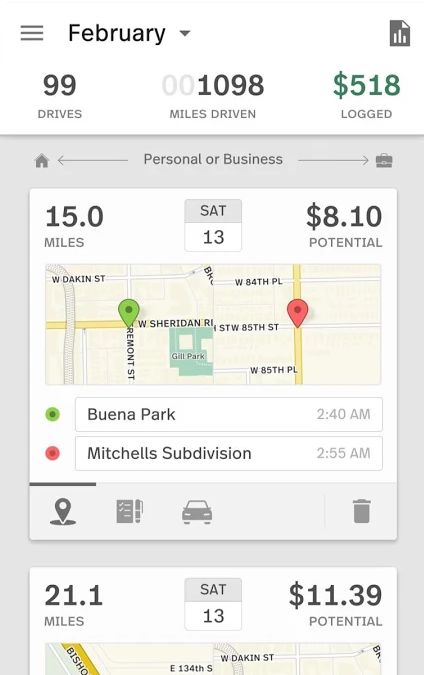Maximize Your Tax Obligation Reductions With a Simple and Efficient Mileage Tracker
In the realm of tax obligation deductions, tracking your gas mileage can be an often-overlooked yet pivotal task for optimizing your financial advantages. Understanding the nuances of reliable mileage tracking might reveal techniques that can considerably affect your tax obligation situation.
Value of Gas Mileage Tracking
Tracking mileage is vital for any person looking for to optimize their tax obligation reductions. Exact gas mileage monitoring not just guarantees conformity with internal revenue service regulations but likewise enables taxpayers to benefit from deductions associated with business-related travel. For self-employed individuals and business owners, these deductions can dramatically lower taxed revenue, thereby lowering total tax obligation responsibility.
Additionally, keeping a detailed document of gas mileage assists compare individual and business-related journeys, which is necessary for corroborating insurance claims during tax obligation audits. The IRS requires specific documents, including the date, location, function, and miles driven for each trip. Without thorough documents, taxpayers run the risk of losing beneficial reductions or facing fines.
Furthermore, effective mileage monitoring can highlight fads in traveling expenses, aiding in much better financial preparation. By evaluating these patterns, people and services can identify possibilities to optimize traveling routes, lower expenses, and enhance functional effectiveness.
Choosing the Right Gas Mileage Tracker
When selecting a mileage tracker, it is necessary to take into consideration various attributes and functionalities that line up with your specific requirements (best mileage tracker app). The initial aspect to evaluate is the approach of monitoring-- whether you choose a mobile application, a GPS device, or a hand-operated log. Mobile apps typically give benefit and real-time monitoring, while general practitioner devices can provide even more precision in distance dimensions
Following, assess the combination capacities of the tracker. A good mileage tracker must seamlessly integrate with bookkeeping software program or tax obligation preparation tools, enabling uncomplicated information transfer and reporting. Look for attributes such as automated tracking, which decreases the demand for manual access, and classification choices to compare service and personal trips.

How to Track Your Mileage
Selecting a suitable mileage tracker sets the structure for reliable gas mileage monitoring. To properly track your gas mileage, start by figuring out the objective of your trips, whether they are for organization, philanthropic activities, or medical reasons. This quality will certainly aid you classify your journeys and guarantee you record all pertinent information.
Next, consistently log your gas mileage. For hands-on entrances, record the beginning and ending odometer analyses, along with the day, function, and route of each journey.
It's also vital to regularly review your entries for accuracy and completeness. Establish a timetable, such as regular or monthly, to settle your documents. This technique assists avoid disparities and guarantees you do not overlook any kind of deductible gas mileage.
Finally, back up your documents. Whether digital or paper-based, keeping backups shields against information loss and helps with very easy gain access to throughout tax prep work. By carefully tracking your mileage tracker app gas mileage and preserving arranged records, you will certainly prepare for maximizing your possible tax reductions.
Optimizing Deductions With Accurate Records
Accurate record-keeping is important for optimizing your tax obligation reductions related to mileage. When you preserve in-depth and specific documents of your business-related driving, you create a robust structure for declaring deductions that may dramatically lower your taxed revenue.
Utilizing a mileage tracker can streamline this process, allowing you to log your trips effortlessly. Numerous apps automatically determine distances and categorize trips, saving you time and reducing errors. Additionally, keeping sustaining documents, such as invoices for relevant expenditures, reinforces your situation for reductions.

It's necessary to be regular in videotaping your gas mileage. Daily monitoring makes sure that no trips are neglected, which might lead to missed reductions. Regularly reviewing your logs can aid determine patterns in your driving, enabling for better preparation and possible tax savings. Ultimately, exact and orderly mileage documents are crucial to maximizing your deductions, guaranteeing you maximize the possible tax obligation benefits available to you as an organization motorist.
Usual Errors to Avoid
Keeping careful records is a substantial action toward maximizing gas mileage reductions, however it's equally vital to be knowledgeable about usual errors that can undermine these initiatives. One prevalent mistake is stopping working to record all trips properly. Even small business-related journeys can accumulate, so ignoring to record them can bring about substantial shed reductions.
An additional error is not differentiating in between individual and company gas mileage. Clear categorization is critical; mixing these 2 can trigger audits and cause penalties. Furthermore, some people fail to remember to maintain supporting papers, such as invoices for related costs, which can further verify claims.
Making use of a gas mileage tracker application ensures consistent and dependable records. Familiarize yourself with the newest policies relating to mileage deductions to prevent unintentional errors.
Conclusion
To conclude, effective mileage monitoring is crucial for taking full advantage of tax reductions. Making use of a trustworthy gas mileage tracker streamlines the process of tape-recording business-related trips, ensuring accurate documents. Normal evaluations and backups of mileage documents improve compliance with IRS laws while sustaining notified financial decision-making. By avoiding usual mistakes and maintaining thorough records, taxpayers can considerably decrease their total tax obligation obligation, ultimately profiting their monetary health. Applying these methods fosters an aggressive method to managing organization costs.